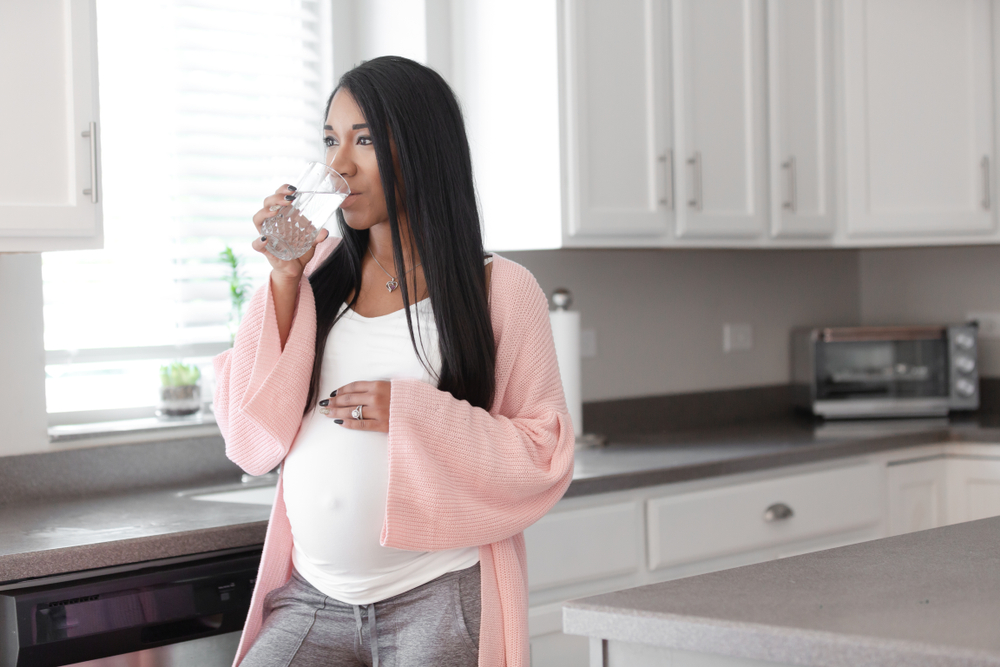Hydration and pregnancy
Hydration and pregnancy
The amount we need to drink varies from person to person, so it will vary among pregnant women too, but it’s important to stay hydrated. In the UK we do not have any advice on how much to drink in pregnancy. However, in Europe the recommendation is to drink a little more to consider the weight gain and increase in energy intake in the latter stages of pregnancy.
Water is needed to produce the fluid surrounding your baby and to help increase your blood volume. If you are suffering with morning sickness, you will also be losing extra fluid, so it is important to try to drink a little more to make up for this. Thirst is your body’s way of telling you that you need to drink, and by the time thirst kicks in you are already a little dehydrated, so you should always respond to your thirst. Another way of monitoring your hydration is to check your urine colour. It should be a pale straw colour and if it is darker than this then you probably need to drink a bit more fluid. For more information see our page on healthy hydration.
What to drink?
Plain water is a good choice, but all non-alcoholic drinks can count towards your fluid intake, including milk, fruit and vegetable juices, smoothies and hot drinks. Note that you should keep your caffeine intake below 200mg per day during pregnancy. A mug of instant coffee, for example, has about 100mg of caffeine, filter coffee about 140mg, and a mug of tea about 75mg.

There is little scientific evidence available with regards to the safety of herbal and green teas in pregnancy, but the Food Standards Agency previously recommended drinking no more than around four cups of herbal tea a day during pregnancy, and to seek advice from your GP or midwife if you are unsure about which herbal products are safe to consume. Bear in mind that green tea has caffeine.
When it comes to choosing drinks, be aware of both their calorie content and their potential effect on your teeth. Drinks containing sugar (including juices and smoothies, which contain naturally occurring sugars) can add significant amounts of calories to your diet, so be aware that they contribute to your energy intake in the same way as foods do. With regards to your dental health, the sugar content and the acidity of drinks can have an impact. This includes fruit juices and smoothies, and so it is a good idea to limit these to one small glass (150ml) per day with meals.
Frequent consumption of sugar can increase your risk of dental caries, while frequent consumption of acidic drinks such as fizzy soft drinks, fruit teas, juices and smoothies can increase your risk of dental erosion. During pregnancy you are at greater risk of developing problems with your teeth and gums (such as tooth decay and gum disease) and you may not be able to undergo certain dental treatments, so it is a really good time to make sure you are looking after your teeth. Therefore, make sure you brush your teeth twice a day with fluorinated toothpaste. To make sure your teeth are not exposed too many times a day to highly acidic or sugar-containing foods and drinks, try to limit these to mealtimes only.
Information reviewed June 2015
